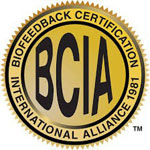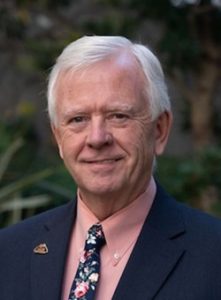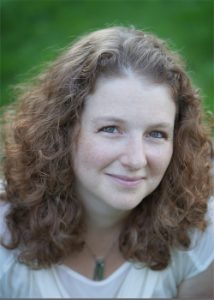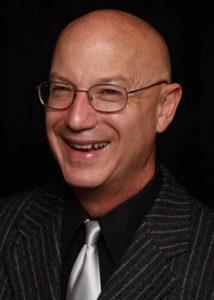Foundations of Heart Rate Variability Training: Basics and Advances. A BCIA accredited certification course.

Donald Moss, PhD
Inna Khazan, PhD
Frederic Shaffer, PhD
2-day workshop
Date: Monday & Tuesday, March 24-25, 2025
Language: English
Workshop Title
Foundations of Heart Rate Variability Training: Basics and Advances.
A BCIA accredited certification course.
Workshop Description
This workshop is designed for biofeedback/ neurofeedback practitioners, psychologists, clinical counselors, clinical social workers, marriage and family therapists, nurses, physicians, and other healthcare professionals, academicians or others interested in utilizing heart rate variability (HRV) biofeedback in their practice or research. This workshop will cover 15.00 hours of the BCIA HRV Biofeedback Blueprint and will cover cardiac anatomy and physiology, respiratory anatomy and physiology, autonomic nervous system anatomy and physiology, heart rate variability, HRV instrumentation, and HRV measurements. Attendees will review the cardiac, respiratory, and autonomic anatomy and physiology that underlies HRV biofeedback. They will discuss the central role of breathing in diverse disorders like anxiety, hypertension, and chronic pain. Last, they will explain how HRV biofeedback restores autonomic balance and why this is important to health and performance. Attendees will be able to discuss the meaning and sources of HRV, and the correlates of low, normal, and high HRV. The presenters will explain the relationship between aging, disease, and reduced HRV. Attendees will be able to explain how to properly use HRV instruments and interpret signals from blood volume pulse, electrocardiogram, and respirometer sensors. The presenters will survey the major artifacts that contaminate recordings from these sensors and show how to prevent or minimize them. Attendees will be able to describe and interpret HRV time and frequency domain measurements. Attendees will also practice conducting Resonance Frequency Assessments and HRV training sessions.
Learning Objectives
1) Explain the meaning of HRV, sources of HRV, factors that influence HRV, correlates of low and normal HRV, and the benefits of increased HRV.
2) Explain the physiological basis of HRV and the blood volume pulse (BVP), electrocardiogram (ECG), and respirometer signals.
3) Summarize how how BVP, ECG, and breathing sensors operate, how to perform tracking tests, and how to identify and control artifacts.
4) Practice conducting HRV assessments and training sessions.
About Donald Moss
Dr. Donald Moss is Professor and Dean, College of Integrative Medicine and Health Sciences, at Saybrook University, Pasadena, CA. He is a clinical health psychologist, certified in biofeedback and hypnosis. Moss is the ethics chair for the Biofeedback Certification International Alliance. He is the education chair, publications chair, and president-elect for the Society for Clinical and Experimental Hypnosis (SCEH). He previously served as president of SCEH, president of Division 30 (hypnosis) of the American Psychological Association, and president of AAPB.
Moss is co-author with Fredric Shaffer of A Primer of Biofeedback (AAPB, 2022), and co-author with Angele McGrady of Your Pathway through Chronic Illness (Pavilion, in press), Integrative Pathways: Navigating Chronic Illness with a Mind-Body-Spirit Approach (Springer, 2018), and Pathways to Illness, Pathways to Health (Springer, 2013).
Moss is co-editor of several scholarly books, including The Integration of Psychotherapy and Psychophysiology (Oxford University Press, in press), Evidence-Based Practice in Biofeedback and Neurofeedback (AAPB, 2023), Mindfulness, Compassion, and Biofeedback Practice (AAPB, 2020), Physiological Recording Technology and Applications in Biofeedback and Neurofeedback (AAPB, 2019), Foundations of Heart Rate Variability (AAPB, 2016), Handbook of Mind Body Medicine for Primary Care (Sage, 2003), and Humanistic and Transpersonal Psychology (Greenwood Press, 1999).
About Inna Khazan
Inna Khazan, Ph.D., BCB is a clinical psychologist, and faculty at Harvard Medical School. She maintains a private practice in Boston, working with clients on optimizing their health and performance. Dr. Khazan is recognized as a pioneer in the area of mindfulness and acceptance based biofeedback, and is the author of Clinical Handbook of Biofeedback: A Step-by-Step Guide to Training and Practice with Mindfulness.
About Frederic Shaffer
Fredric Shaffer, PhD, BCB is a biological psychologist and professor of Psychology and former Department Chair at Truman State University, where he has taught since 1975 and has served as Director of Truman’s Center for Applied Psychophysiology since 1977. In 2008, he received the Walker and Doris Allen Fellowship for Faculty Excellence. In 2013, he received the Truman State University Outstanding Research Mentor of the Year award. Dr. Shaffer is a co-editor of Evidence-Based Practice in Biofeedback and Neurofeedback (3rd ed.). He is a co-editor with Donald Moss of Foundations of Heart Rate Variability Biofeedback: A Book of Readings. He co-authored with Rollin McCraty and Christopher Zerr, the Frontiers in Psychology review article “A healthy heart is not a metronome: An integrative review of the heart’s anatomy and heart rate variability.” Finally, he co-authored with Rollin McCraty, the Global Advances in Health and Medicine review article, “Heart rate variability: New perspectives on physiological mechanisms, assessment of self-regulatory capacity, and health risk.” He is a contributing editor for the journal Applied Psychophysiology and Biofeedback. His current research focuses on techniques to increase heart rate variability biofeedback. Dr. Shaffer is a BCIA Senior Diplomate in Biofeedback. Dr. Shaffer is the Chair of the Biofeedback Certification International Alliance (BCIA) and Treasurer for the Association for Applied Psychophysiology and Biofeedback (AAPB).



